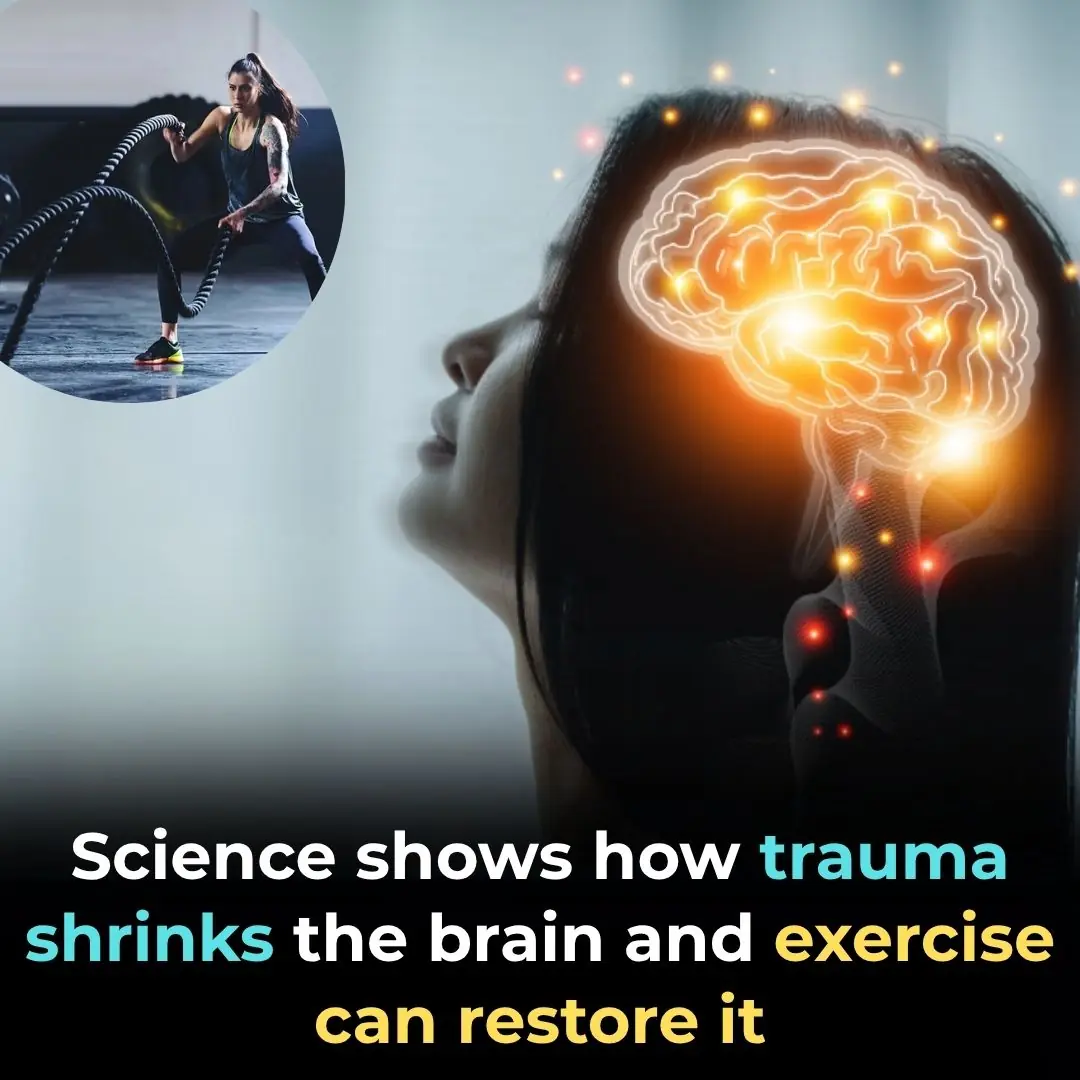
Scientists Reveal Interoception, the Amazing Sixth Sense of Humans
The Hidden Sixth Sense That Connects Mind and Body: Understanding Interoception
Most of us grow up learning that humans have five senses — sight, smell, hearing, taste, and touch. But scientists now believe there’s a sixth one, quietly shaping nearly everything we feel, think, and do.
This hidden sense, known as interoception, doesn’t help us detect the outside world — instead, it helps us sense what’s happening inside our bodies. It constantly monitors internal signals like heartbeat, breathing, hunger, and temperature, forming a bridge between the body and the mind.
According to groundbreaking research from Scripps Research Institute, this inner awareness may be one of the most vital and least understood functions of human biology. It underpins our health, emotions, and even survival — yet most people are unaware it exists.
The Inner Sense You’ve Always Had
“Interoception is how the brain listens to the body,” explains Dr. Ardem Patapoutian, Nobel Prize–winning neuroscientist at Scripps Research. “It tells us when to eat, when to rest, when to breathe deeper, and how to regulate emotions.”
For centuries, the traditional five-sense model dominated our understanding of perception. But interoception introduces a revolutionary idea: that the human body comes equipped with an internal sensory system that’s constantly reading its own status — a kind of biological dashboard.
It’s this sense that nudges you to drink when dehydrated, to shiver when cold, or to yawn when oxygen levels drop. You don’t consciously decide these actions — your interoceptive network takes care of them automatically.
The Science Behind Interoception
At the heart of this discovery are two tiny proteins called PIEZO1 and PIEZO2, identified by Dr. Patapoutian and his team. These proteins act as ion channels, microscopic gates that allow cells to respond to physical pressure or stretch.
Initially, scientists believed these channels were only responsible for touch and movement. But to their surprise, they found PIEZO proteins scattered throughout internal organs — in the heart, lungs, stomach, intestines, and blood vessels.
This meant that the same molecular tools we use to feel a touch on our skin also allow our organs to “feel” what’s happening inside the body — forming the foundation of interoception. Remarkably, even plants possess similar mechanisms in their roots, revealing a universal biological principle: all living systems need a way to sense themselves.
How the Brain Uses Internal Signals
Every moment, the body sends a flood of internal signals to the brain — tiny updates about temperature, oxygen levels, nutrient status, and more. The brain then interprets this data and decides how to respond, adjusting everything from blood pressure to emotional state.
For example:
-
When oxygen levels drop, your body signals you to take a deeper breath.
-
When energy is low, it triggers hunger.
-
When you’re sick, it activates immune responses.
All of this happens automatically, below conscious awareness. But when interoception becomes disrupted — for instance, by chronic stress or illness — both physical and emotional balance can falter.
The Emotional Side of Interoception
Interoception doesn’t just keep you alive — it helps you feel alive.
It’s the reason your chest tightens when anxious or your stomach flutters when nervous. These aren’t just poetic expressions — they’re physical reflections of emotional states.
Researchers now believe that interoception is deeply tied to emotional regulation. When this system is well-tuned, you feel balanced, calm, and grounded. When it’s out of sync, emotional instability, anxiety, or even depression can emerge.
This connection may explain why mental and physical health are so intertwined — and why practices like mindfulness, yoga, and deep breathing can be so powerful. They enhance interoceptive awareness, helping the brain listen to the body more clearly.
A $14.2 Million Mission to Decode the Sixth Sense
Leading this frontier of research is Professor Xin Jin at Scripps Research, who is spearheading a $14.2 million NIH-funded study to map how interoceptive signals travel from the body to the brain.
Jin’s team aims to identify the exact neural pathways that carry internal data — from heartbeats and gut movement to immune responses — and how this information shapes both physical health and mental well-being.
“Interoception touches nearly every aspect of human health,” Jin explains. “Understanding it could completely transform how we treat disorders ranging from anxiety to heart disease.”
From Gut Feelings to Emotional Intelligence
The concept of interoception may also explain something long considered mysterious — the “gut feeling.”
When people say they have a sense that something is wrong, it’s not just intuition. Their interoceptive system may be picking up on subtle physiological cues — like changes in heart rate, tension, or breathing — long before the conscious mind notices.
In this way, interoception doesn’t just protect us; it enhances self-awareness, intuition, and empathy. It enables us to connect physical sensations with emotions, helping shape how we relate to ourselves and others.
Health Implications and Future Therapies
Understanding and improving interoceptive awareness may hold promise for treating several conditions:
-
Anxiety and Depression: Disrupted internal signal processing can heighten fear or panic.
-
Eating Disorders: Misreading hunger or fullness cues may stem from impaired interoception.
-
Chronic Stress and Pain: Recalibrating interoceptive systems could reduce overactive stress responses.
Therapies that enhance interoceptive connection — through biofeedback, mindfulness training, or breath-based therapies — may soon become integral to both mental and physical healthcare.
A Sense That Defines Humanity
Even though it works quietly in the background, interoception shapes everything we experience — from hunger to heartbreak. It keeps your heart beating, regulates your hormones, and guides your emotional world.
As Dr. Patapoutian puts it, “Interoception may be as fundamental as sight or hearing. It’s how the brain and body stay in constant conversation.”
So the next time you feel a knot in your stomach before a tough decision or a lump in your throat during sadness, remember — it’s not just emotion. It’s your sixth sense at work, ensuring that your mind and body stay perfectly in tune.
News in the same category


The Shoes You Pick Reveal What Kind of Woman You Are

Stop This Spider From Entering Your Home

Why We Can’t Sleep Without a Blanket Even on Hot Nights

DoorDash Steps Up: Free Deliveries for SNAP Recipients as Federal Assistance Nears Collapse

Trump Blasts TIME Magazine for Unflattering Cover Photo

Nostradamus’s Predictions About Cats In The Home

Here’s Why Many Couples Start Sleeping In Separate Beds After 50

Conveniently keep these 3 things under the bed, no wonder the family is in chaos, has many difficulties, and still works hard

5 Phrases That Indicate a Man is About to Leave His Wife for Another Woman

Can You Find The Missing Girl in the Wilderness

Why You Keep Your Room Messy According to Psychology

New Research Upends 10,000-Step Rule for Older Adults

How Science Reveals the Hidden Power of the Brain to Heal from Emotional Trauma

Can you spot the hidden dog? Only people with eagle eyesight can!

Can you spot the book, egg, cup, and pillow?

Scientists discover evidence of 'Adam and Eve' living 200,000 years ago

Discover Love in the Little Things: Everyday Connections

The Political Science Of Ending Animal Testing In The US
News Post

Discover the Meaning of a Black Cat Approaching You

Add ice cubes to the bone broth

11 Benefits of Dandelion Roots

#1 Absolute Best Toenail Fungus Cure You Can Make at Home with Just 3 Ingredients

Banana Peel & Cornstarch: A Natural Skin Hack That Could Help You Look Younger

Homemade Remedies for Varicose Veins with Onion, Garlic, and Apple Cider Vinegar

Crema Casera con Vaselina que Rejuvenece la Piel al Instante

Top 5 Natural Remedies to Shrink Enlarged Pores and Achieve Smooth Skin

DIY Onion Sunflower Seed Oil: Get New Hair In Bald Patches

Homemade Carrot Oil for Glowing Skin: A Natural Solution for Dark Spots, Wrinkles & Anti-Aging

Glow Ice: Rice Water Cubes to Shrink Pores and Get Clear, Radiant Skin

The Body’s Intuition: Signs of an Impending End

When boiling sweet potatoes, don't just use water, add 1 spoon of this, every tuber will be soft and sweet

Stir-fried beef is tough: Add these 3 steps, the meat will be softer, sweeter, and tastier than in restaurants

The Shoes You Pick Reveal What Kind of Woman You Are

Dead Butt Syndrome Is Real

Stop This Spider From Entering Your Home

Why We Can’t Sleep Without a Blanket Even on Hot Nights

Using Hot Water to Clean a Greasy Pan Sounds Smart — But It’s Actually Doing More Harm Than Good
